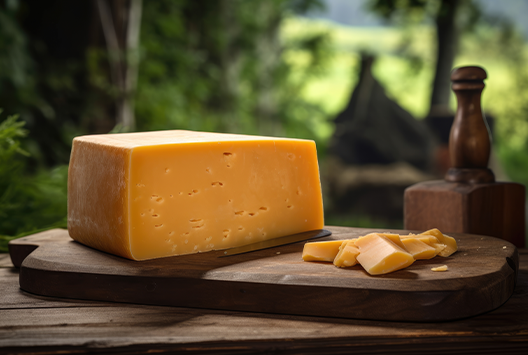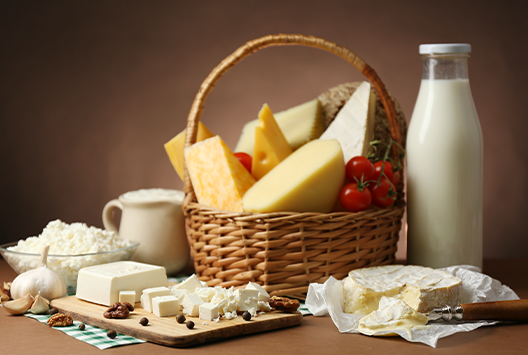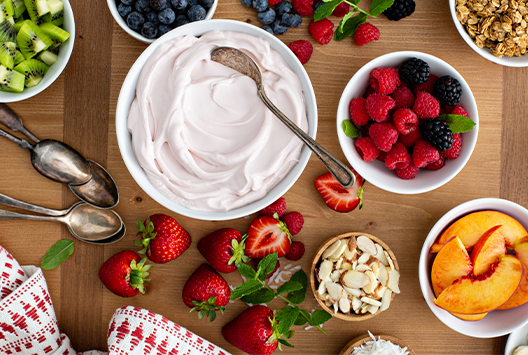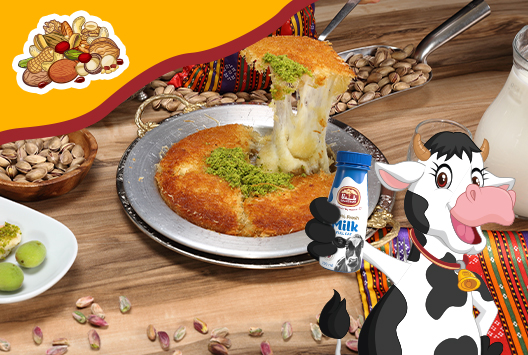
Important Facts You Must Know About Cheddar Cheese
Similar
Cheddar cheese is a legendary delight that has stood the test of time in terms of popularity. But, how much do you really know about cheddar cheese? Below, we will uncover eight facts that will leave you craving for more.
How is cheddar cheese made?
The cheddar cheese-making process has remained relatively unchanged over the centuries. The cheese is made by taking raw cow's milk and heating it to a specific temperature.
The milk is then treated with lactic acid bacteria to create a curd, which is cut into small pieces and then heated to a higher temperature. This process causes the proteins in the curd to bond together and form the cheese. The curd is then placed into molds and pressed to give it its shape and texture. After that, the cheese is brined, or soaked in a salt solution, to give it its distinct flavor. Finally, the cheese is aged to further develop its taste.
The nutritional value of cheddar cheese
Regarding nutritional value, cheddar cheese is an excellent source of protein, calcium, and vitamin B12. It is also an excellent source of phosphorus and zinc. Cheddar cheese is low in fat and contains no carbohydrates. This makes it a great choice for those following a low-carbohydrate diet.
The different types of cheddar cheese
Now, we will explore the different types of cheddar cheese and what makes them distinct.
1. Sharp Cheddar
Sharp cheddar has a strong, tangy flavor and a firm, crumbly texture. The longer it is processed, the sharper its flavor. Sharp cheddar is ideal for making sandwiches, casseroles, and grilled cheese.
2. Extra Sharp Cheddar
Extra sharp cheddar is the same as sharp cheddar but has been aged for an extended period. This gives it an even stronger, more intense flavor and a firmer texture. It is excellent for adding a punch of flavor to dishes, such as macaroni and cheese or quesadillas.
3. Smoked Cheddar
Smoked cheddar has been smoked over a wood fire. This gives it a smoky flavor and a slightly softer texture. Smoked cheddar adds a smoky flavor to dishes such as grilled cheese sandwiches or macaroni and cheese.
4. White Cheddar
White cheddar has not been dyed with annatto. It has a milder flavor than other types of cheddar and a smooth, creamy texture. White cheddar is great for adding a subtle flavor to dishes such as nachos or quesadillas.
5. Aged Cheddar
Aged cheddar is cheddar that has been aged for a prolonged period. This gives it a stronger flavor and a crumbly texture. Aged cheddar adds a sharp taste to dishes, such as grilled cheese sandwiches or macaroni and cheese.
How to store cheddar cheese
Preserving the taste and texture of cheddar cheese is not difficult if you consider these expert tips when storing:
1. Place in an airtight container
Cheddar cheese should be stored in an airtight container, such as a plastic container with a tight-fitting lid or a resealable plastic bag. This will help keep the cheese from drying out and prevent it from absorbing flavors from other foods in your refrigerator.
2. Store in the refrigerator
Cheddar cheese should be stored in the refrigerator at temperatures between 0.6 and 4°C. The colder the temperature, the longer the cheese will last, but it can also become stiff and crumbly if stored for too long.
3. Use it within a few weeks
Cheddar cheese can last up to 4 weeks when stored properly in the refrigerator. After that, it is best to use or discard it, as it is more likely to develop mold or become dry and crumbly.



